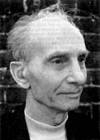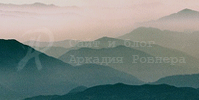Henri Tracol

Henri Tracol (1909-1997) was a French photographer and a journalist, writing articles and contributing photographs to popular magazines like Vu, as well as a sculptor and an anthropologist. He was also an active proponent of the Republican cause during the Spanish Civil War (1936-1939), publishing reports about the war in periodical editions with which he was associated. He was married for some time to Henriette H. Lannes, who later became the leader of the Gurdjieff Work in England.
He made the acquaintance with Gurdjieff in 1939 and became an ardent follower of his teaching, associating with him for ten years. After the latter’s death in 1949, Tracol became one of the leaders of the French Gurdjieff group, working closely with Madame de Salzmann and other senior members. He provided assistance in the French translations of Gurdjieff’s writings. He influenced many students of the Work by his unique approach to Gurdjieff’s legacy which combined psychological insight with an interest in Traditionalist philosophy as well as Indian mystics like Coomaraswami. Later Tracol was appointed as director of the L’Institut G.I. Gurdjieff, the first of the four member sections of the International Association of the Gurdjieff Foundations, the other groups being in London, New York and Caracas.
Some of Tracol’s students found his name to contain a certain amount of anagrams, including “CHARTER LION,” “NICER HARLOT,” “REAL CORINTH” and “LINEAR TORCH” and proceeded onwards to find symbolic explanations for each of these anagrams.
A number of Tracol’s talks and lectures have been transcribed, collected and published in books in English and French:
George Ivanovitch Gurdjieff: Man’s Awakening and the Practice of Remembering Oneself. Bray, England: The Guild Press, 1977. This short book of 19 pages presents the text of a talk by Tracol.
Rencontre avec deux hommes remarquables (Meeting with Two Remarkable Men).Paris: Stock, 1979. A book about Gurdjieff and Oscar Ichazo, written by Tracol together with Jeanne de Salzmann.
Pourquoi dors-tu seigneur? (Why do you sleep, Lord?) Paris: Editions Pragma Vers, 1983. The title is based on the line from Psalm 44: 23: “Awake, O Lord! Why do you sleep?” Later the book was published in enlarged format as La vraie question demeure (The real question remains) Paris: Editions Eoliennes, 1996.
La vraie question demeure (The real question remains). Paris: Editions Eoliennes, 1996. An enlarged reissued edition of the book Pourquoi dors-tu seigneur? (1983).
Lord, Why do you Sleep (Expanded as The Real Question Remains (Wind Publishing, 1996).)
The Taste for Things that Are True: Essays and Talks by a Pupil of G.I. Gurdjieff.Shaftsbury, England: Element Books, 1994.
The Real Question Remains: G.I. Gurdjieff: A Living Call. Paris: Aeolian, 1996. Sandpoint, Indiana: Morning Light Press, 2009.
Buscador de Nacimiento – La llamada de G.I. Gurdjieff. Caracas, Venezuela: Caracas, 1999. A collection of articles, interviews, conferences and exchanges in Tracol’s group.
Other talks by Tracol have been translated into English and published in such magazines as Parabola and The Gurdjieff Review.
Quotations from Tracol:
“(…) It (i.e. the Gurdjieff Work) also allows the individual to discover and realize certain hidden possibilities, by means of simultaneous and coordinated engaging of one’s intellectual, emotional, and physical capacities to ward a voluntary concentration upon the struggle which takes place within the self between one’s positive and negative tendencies.”
“We are much more concerned by the relationship between mind and body, feeling and body, and by the presence of that which bears witness to their unity.”
“Here lies the reconciliation between authority and search: they need each other. They attract one another mutually in this movement of unending renewal through which the life of culture perpetuates itself.”
“Such is the law of this equivocal situation: without sleep, no awakening; without oblivion, no remembering.”
“We can say that the balance between culture and civilization is broken and that the most salient characteristic of our time, this subordination of pure science to a program of absolutely dizzying technical ‘achievements,’ is alienating ourselves from ourselves”.
“The man who is in love with real culture aspires to a transformation of himself through knowledge. All knowledge seems pointless to him if it is not first and foremost self-knowledge. For it is only inasmuch as he knows himself that he knows how to choose his nourishment according to his real needs.”
“It (i.e. the Work) keeps alive in us the evidence of a secret continuity: consciousness never ceases to offer itself to us.”
Articles:





